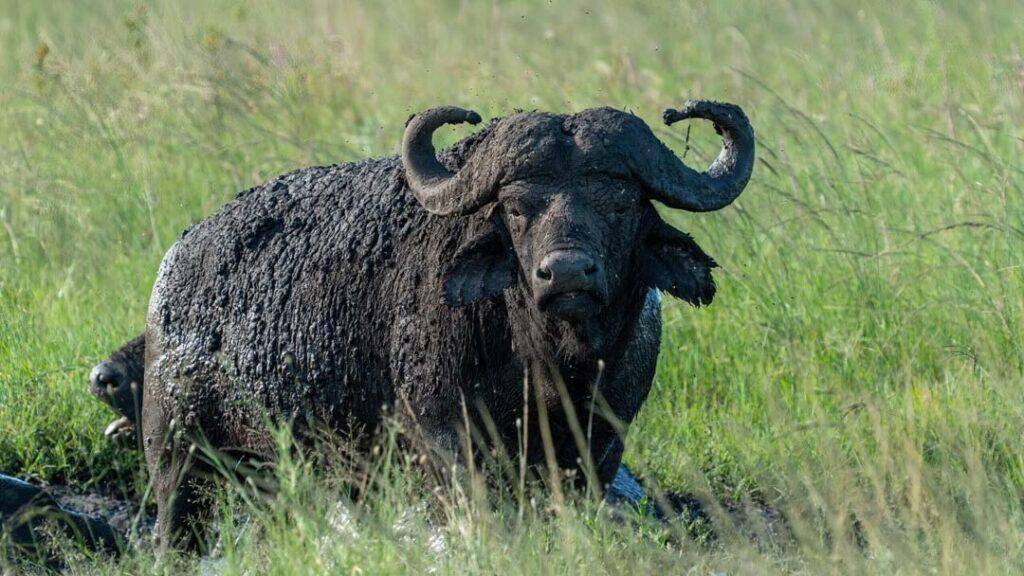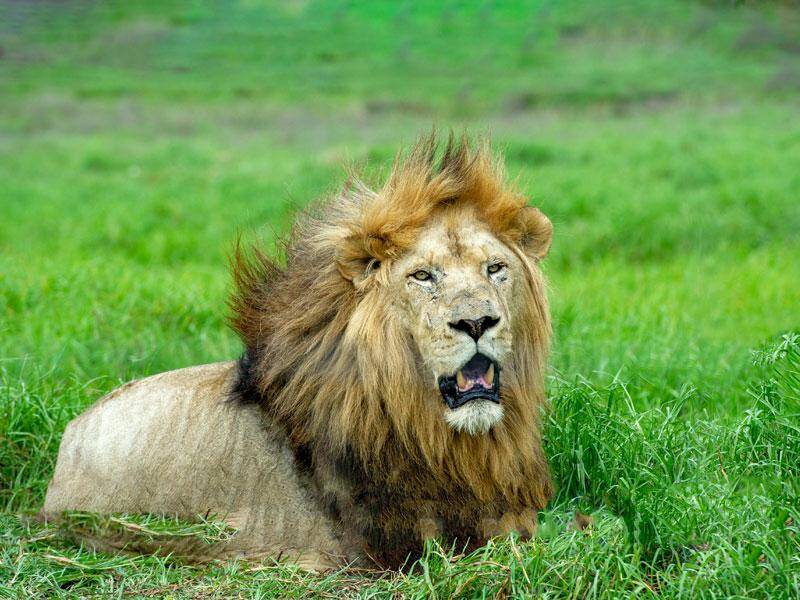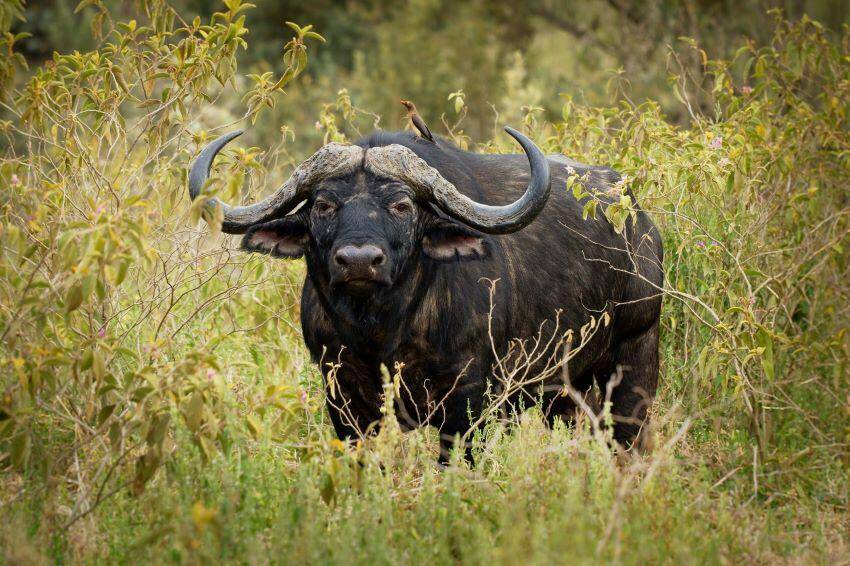Big game hunting is more than a pursuit; it’s a journey into the wild to encounter some of the world’s most majestic and challenging animals. From the towering elephants to the elusive leopards, this form of hunting focuses on species that require skill, patience, and respect for nature. It’s a practice deeply rooted in tradition and often serves as a way to connect with the natural world on a profound level.
In Africa, big game hunting often centers around the iconic Big 5—elephant, lion, leopard, rhinoceros, and Cape buffalo—each presenting its own unique challenge. For those seeking even more adventure, dangerous game hunts include crocodiles and hippopotamuses, adding another layer of complexity. Whether you’re a seasoned hunter or exploring this for the first time, big game hunting offers an unmatched experience that combines excitement with a deep appreciation for the wildlife and landscapes of Africa.
[DYNAMIC-BLOGTABLEOFCONTENT]
Key Takeaways
- Big game hunting involves pursuing large, often challenging animals, testing hunters’ skills, patience, and respect for nature in their natural habitats.
- The African Big 5—elephant, lion, leopard, rhinoceros, and Cape buffalo—are the most iconic species sought by hunters, each presenting unique challenges and risks.
- Modern practices emphasize ethics and conservation, using strict regulations, quotas, and permits to ensure species sustainability and habitat protection.
- Big game hunting supports conservation efforts, with revenue funding anti-poaching initiatives, habitat restoration, and local communities.
- Effective hunting requires specialized tools and techniques, including high-caliber rifles, optics, tracking, and stalking skills.
- From ancient traditions to modern safaris, big game hunting holds cultural and historical significance while promoting a balance between adventure and conservation.
What Is Big Game Hunting
Big game hunting focuses on harvesting large and often challenging-to-hunt animals. It tests a hunter’s skill, patience, and preparedness, offering opportunities to encounter iconic wildlife in their natural habitats. Typically, it involves tracking and hunting species known for their size, strength, or scarcity.
Understanding African Big Game Hunting
African big game hunting primarily features the Big 5 in Africa: Elephant, Lion, Leopard, Rhinoceros, and Cape Buffalo. These species are sought after for the unique challenges they pose, from the stealth required to pursue a Leopard at dusk to the strength and courage needed to face a charging Cape Buffalo. Dangerous game like crocodiles and hippopotamuses also adds to the variety, appealing to hunters seeking elevated challenges.
Key Characteristics of Big Game Hunting in Africa
- Skill Requirements: Mastery of techniques for stalking, tracking, and precise shooting is crucial. For instance, targeting elusive Leopards or Cape Buffalo demands exceptional marksmanship.
- Preparation: Physical and mental preparation is vital due to the unpredictability of quick encounters or long pursuits.
- Ethical Practices: Conservation-driven hunting ensures species’ sustainability. Ethical hunters follow local regulations and respect animal populations.
Big 5 African Game: A Unique Hunting Experience
The Big 5 African game symbolizes premium hunting adventures. Encounters differ vastly among species. Hunting an Elephant requires patience and distance control, while facing a Lion tests bravery and awareness. These experiences leave hunters with stories and memories that reflect Africa’s unparalleled landscapes and wildlife.

The History Of Big Game Hunting
Big game hunting has evolved through centuries, reflecting changes in societies, cultures, and conservation practices. From ancient traditions to modern practices, it holds a unique place in human history and offers insight into our connection with nature.
Early Practices And Traditions
Big game hunting dates back thousands of years, originating as a means for survival. Early humans relied on the pursuit of large animals such as mammoths, bisons, and elk for food, clothing, and tools. Their hunting methods utilized basic weapons like spears and bows, relying heavily on teamwork and strategic planning.
In ancient African societies, hunting became interwoven with cultural traditions and rites of passage. Hunting the Big 5 in Africa—elephant, lion, leopard, rhinoceros, and Cape buffalo—signified bravery and skill. Many tribes performed ceremonial rituals before and after hunts, highlighting the spiritual connection between communities and wildlife.
During the colonial period, the focus shifted toward trophy hunting. Wealthy Europeans and other explorers traveled to Africa to hunt iconic species. Instead of necessity, these hunts emphasized status and adventure. Guides, or “white hunters,” emerged during this era, establishing the foundation for professional hunting safaris seen in modern times.
Big Game Hunting In Modern Times
Today, big game hunting is defined by ethical regulations, conservation, and sustainability. African big game hunting revolves around carefully managed programs to protect wildlife populations and natural ecosystems. The trophy hunting industry supports local communities through employment, anti-poaching initiatives, and conservation fees.
Hunting practices now prioritize humane methods, adhering to strict laws and quotas. For example, big game hunting in Africa often requires permits issued by wildlife authorities. These permits ensure species preservation and align with global conservation efforts.
Advances in technology have also impacted hunting approaches. Modern hunters use precision equipment like high-caliber rifles and advanced optics. Yet, the core challenges remain the same. Tracking a Cape buffalo or stalking a leopard demands unparalleled patience, concentration, and respect for the animal.
As an adventure steeped in tradition and purpose, big game hunting continues to connect us to nature while promoting responsible practices. Through its storied past and contemporary evolution, it remains a significant pursuit for hunters around the world.

Types Of Big Game Animals
Big game hunting focuses on species prized for their size, rarity, and the challenge they present to hunters. In Africa, the Big 5 African game species dominate this category, alongside other animals found across diverse landscapes.
Popular Species For Big Game Hunting
The Big 5 in Africa—elephant, lion, leopard, rhinoceros, and Cape buffalo—are highly sought after due to their formidable nature and the skill required to hunt them. Each presents unique challenges:
- Elephant: Valued for their massive size and intelligence, elephants demand exceptional tracking skills and precision.
- Lion: Known for its dominance as “king of the jungle,” hunting lions often involves careful observation and patience during their nocturnal activities.
- Leopard: These elusive animals are difficult to detect, requiring expertise in stalk-and-ambush techniques.
- Rhinoceros: With their heavy build, rhinoceroses pose physical dangers and emotionally complex hunting scenarios due to conservation considerations.
- Cape Buffalo: Often regarded as the most dangerous, their unpredictable aggression and speed test even seasoned hunters.
Other recognized big game animals include crocodiles and hippopotamuses, featured in specialized Dangerous Game hunts. Predatory, aquatic, or highly territorial, these species demand thorough preparation and immediate responsiveness. Plains game species—like kudu, impala, and springbok—are alternatives for those seeking less intense yet equally rewarding hunts.
Regional Differences In Target Species
Big game hunting in Africa varies depending on local ecosystems, regulations, and animal populations. Southern African nations like South Africa, Zimbabwe, and Botswana lead in offering huntable populations of the Big 5 African game, complemented by plains game species due to the region’s savannah terrain. Central African regions often appeal to hunters targeting forest elephants or bongo antelopes inhabiting dense forested areas.
Meanwhile, East Africa—comprising Tanzania and Kenya—historically hosts iconic Big 5 and plains game safaris, though modern legal restrictions have altered hunting opportunities. These distinctions encourage hunters to select destinations aligned with desired species and conditions, ensuring sustainable engagement in African big game hunting.
Tools And Techniques Used In Big Game Hunting
Engaging in African big game hunting requires the right tools and a mastery of specialized techniques. Successful hunts depend on the equipment’s reliability and the honed tactics used in the field.
Essential Hunting Gear
Preparation starts with selecting the right tools for the wild. Essential gear for big game hunting includes high-quality rifles, optics, and safety equipment designed for the demands of the terrain and targeted species.
- Rifles and Ammunition: Rifles suited for big game like the Big 5 in Africa must offer precision and stopping power. Bolt-action and double rifles chambered in larger calibers like .375 H&H Magnum or .458 Winchester Magnum are widely used.
- Scopes and Optics: Reliable optics are critical. Scopes offering clear, long-range visuals ensure accurate shots while binos assist in spotting game from a distance.
- Protective Wear: Sturdy boots, durable clothing, and camouflage help hunters adapt to various environments, while hats and gloves provide essential protection.
Our gear recommendations focus on top-notch reliability under African big game hunting conditions, ensuring hunters are fully equipped to face challenges.
Tracking And Shooting Methods
Hunting strategies for big game revolve around skillful tracking and precise shooting techniques. Hunters use these methods to locate animals and secure ethical, well-placed shots.
- Tracking Skills: Understanding animal behaviors and signs is vital. Footprints, scat, and broken vegetation guide hunters toward their targets, especially elusive Big 5 species like buffalo or leopard.
- Stalking: Approaching prey often involves moving downwind to avoid detection, ensuring stealth during hunts in dense bush or open savannas.
- Shooting Techniques: For successful shots, hunters aim for vitals spots—like the heart or lungs—ensuring quick, humane kills. Practicing aim and positioning frequently pays critical dividends in the field.
These core methodologies enhance the overall hunting experience and align with ethical hunting standards. Whether facing the Big 5 or exploring other African big game hunting opportunities, employing proper tools and techniques makes each hunt both memorable and rewarding.
Ethical Considerations And Conservation
Big game hunting, when conducted responsibly, plays a vital role in wildlife conservation and ethical stewardship. Sustainable practices ensure that natural habitats and species populations remain intact for future generations.
Balancing Hunting And Wildlife Protection
Strict regulations govern big game hunting in Africa to protect vulnerable species and ecosystems. Hunting permits, quotas, and seasonal restrictions align with scientific data to prevent overharvesting. Specific examples include population monitoring of the Big 5 in Africa, ensuring sustainable numbers for elephants, lions, and rhinoceroses.
We support ethical hunting by adhering to these regulations and prioritizing humane methods. For instance, accurate shooting minimizes suffering, and strict adherence to “fair chase” principles avoids unethical practices. Wildlife protection measures encourage co-existence between conservation and hunting, maintaining the delicate balance of African ecosystems.
Role Of Big Game Hunting In Conservation Efforts
Revenue from hunting contributes directly to conservation initiatives. In regions with active African big game hunting, hunting fees fund anti-poaching programs, habitat restoration, and community development projects. For example, portions of proceeds from Big 5 African game hunts support local conservation agencies managing protected areas.
Hunting concessions also incentivize private landowners to conserve wildlife by turning natural areas into economically viable hunting grounds. This reduces human-wildlife conflict while expanding the habitats available for species such as Cape buffalo and leopards. Ethical big game hunting ensures that these efforts protect biodiversity while supporting African economies and their wildlife heritage.
Conclusion
Big game hunting represents a deep connection to nature and a test of both mental and physical endurance. It’s more than just a pursuit; it’s an experience that demands respect for the wildlife and the environment.
As we venture into this challenging realm, we’re reminded of the importance of conservation and ethical practices to preserve these majestic species for future generations. Big game hunting is a journey that leaves lasting impressions, shaping our understanding of the wild and our place within it.
Frequently Asked Questions
What is big game hunting?
Big game hunting refers to hunting large animals, often in the wild, such as elephants, leopards, and lions. It requires skill, patience, and respect for wildlife and nature.
What are the Big 5 animals in hunting?
The Big 5 include the elephant, lion, leopard, rhinoceros, and Cape buffalo. These animals are known for their difficulty to hunt and their iconic status in African wildlife.
Is crocodile hunting part of big game hunting?
Yes, crocodiles, along with hippopotamuses, are considered dangerous game animals often included in big game hunting adventures.
What skills are required for big game hunting?
Big game hunting demands patience, tracking expertise, accurate shooting, and an understanding of animal behavior. Respect for wildlife is also essential.
Where is big game hunting most popular?
Africa is the most popular destination for big game hunting, particularly for encounters with the Big 5 and dangerous game species like crocodiles.
